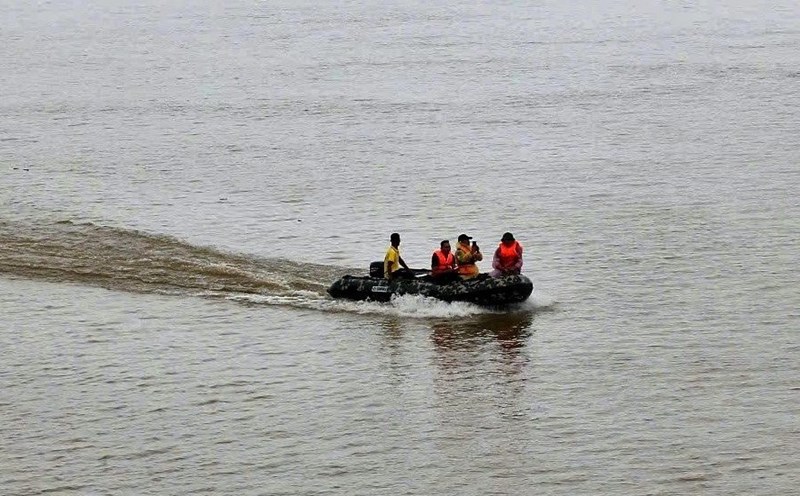World financial authorities had previously planned to discuss the remarkable resilience of the global economy after consecutive shocks. However, the threat of US President Donald Trump imposing a 100% additional tax on imports from China has overturned the IMF-WB agenda and shocked financial markets.
Trump's latest statements to impose a 100% additional tax on Chinese goods - in response to Beijing's expansion of control of rare earth exports - have raised concerns that the world's two largest economies could return to a full-scale trade tensions. However, on October 13, US Treasury Secretary Scott Bessent sought to ease tensions, saying that US-China working groups would meet on the sidelines of the IMF-WB summit. A 100% tax does not necessarily have to happen. The dialogue channels have reopened, we will see how things progress, said Mr. Bessent. Meanwhile, Mr. Trump wrote on the social network Truth Social: "Don't worry about China, everything will be fine!".
Immediately after the US Treasury Secretary's speech, the New York stock market recovered strongly, the Nasdaq index increased by more than 2%, other indexes increased by more than 1%.
Martin Muehleisen, former IMF chief strategist, said Trump's threats may be "in a nutshell" but could still make the biggest financial conference of the year unstable. If Mr Trump does indeed increase tariffs back to 100% on Chinese goods, the market will suffer heavy losses, Muehleisen said.
Before the tensions broke out, IMF managing director Kristalina Georgieva affirmed that the global economy is proving significant resilience to a series of risks - from rising tariffs, rising public debt to rapid change brought by AI. She forecasts global GDP growth in 2025 to reach about 3%, only slightly decreasing compared to 3.3% in 2024.
We are seeing the clear sustainability of the global economy. But this is still a period of high uncertainty, with many potential risks. Be careful, don't be too optimistic," Georgieva said.
In addition to trade and tariffs, this year's IMF-WB conference was overshadowed by the problem of skyrocketing public debt in both developed and emerging economies. According to the International Finance Corporation (IIF), global debt has increased by more than 21,000 billion USD in the first half of 2025, reaching a record high of nearly 338,000 billion USD, an increase of the same scale as the pandemic period.
Another problem is that the strong and rapid explosion of AI also has potential risks. The strong growth of AI has boosted the stock market, helping the S&P 500 increase by 32% since April and the US GDP increase the fastest in nearly 2 years. However, economists still have to see whether the boom in investment in AI will actually lead to sustainable improvements in productivity and growth in the long term, or there is still the potential risk of AI bubbles.
The IMF-WB meeting is also expected to discuss in depth measures to increase sanctions against Russia. British Finance Minister Rachel Reeves said the G7 will coordinate with the EU to tighten Russia's energy revenue and use Russia's frozen assets to support Ukraine.
Meanwhile, the US continues to push the IMF and the WB back to focus on finance and development, instead of focusing too much on climate and gender equality issues. The conference was also the first introduction of Mr. Dan Katz - the new Deputy General Director of the IMF - who is considered the "right-hand man" of US Treasury Secretary Bessent.











